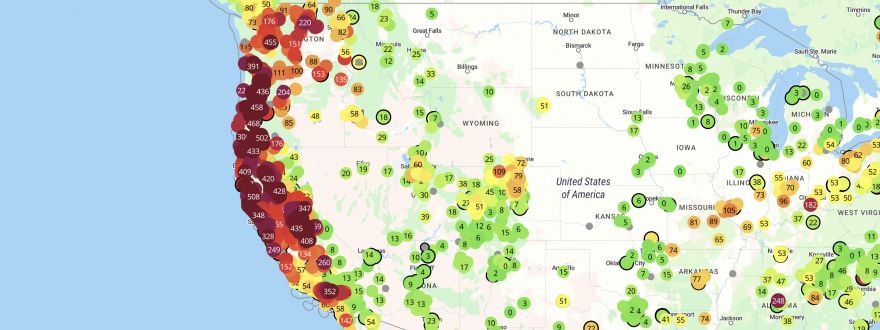
The CDC advises on steps to decrease your risk from wildfire smoke
- Check local air quality reports. Listen and watch for news or health warnings about smoke. Find out if your community provides reports about the U.S. Environmental Protection Agency’s Air Quality Index (AQI) or check the report on AirNow.gov.external icon In addition, pay attention to public health messages about safety measures. We also like Purple Air for air quality readings.
- Consult local visibility guides. Some communities have monitors that measure the amount of particles in the air. In the western United States, some states and communities have guidelines to help people determine if there are high levels of particulates in the air by how far they can see.
- Keep indoor air as clean as possible if you are advised to stay indoors. Keep windows and doors closed. Run an air conditioner, but keep the fresh-air intake closed and the filter clean to prevent outdoor smoke from getting inside. If you do not have an air conditioner and it is too warm to stay inside with the windows closed, go to a designated shelter away from the affected area. Learn more about protecting yourself and your family from smoke during a wildfire.
- Avoid activities that increase indoor pollution. Burning candles, fireplaces, or gas stoves can increase indoor pollution. Vacuuming stirs up particles already inside your home, contributing to indoor pollution. Smoking also puts even more pollution into the air.
- Follow the advice of your doctor or other healthcare provider about medicines and about your respiratory management plan if you have asthma or another lung disease. Consider evacuating if you are having trouble breathing. Call your doctor for advice if your symptoms worsen.
- Do not rely on dust masks for protection. Paper “comfort” or “dust” masks commonly found at hardware stores are designed to trap large particles, such as sawdust. These masks will not protect your lungs from the small particles found in wildfire smoke.
- Evacuate from the path of wildfires. Listen to the news to learn about current evacuation orders. Follow the instructions of local officials about when and where to evacuate. Take only essential items with you. Follow designated evacuation routes–others may be blocked–and plan for heavy traffic.
- Protect yourself cleaning up after a fire. Cleanup work can expose you to ash and other products of the fire that may irritate your eyes, nose, or skin and cause coughing and other health effects. Learn how to stay safe cleaning up after a wildfire.





